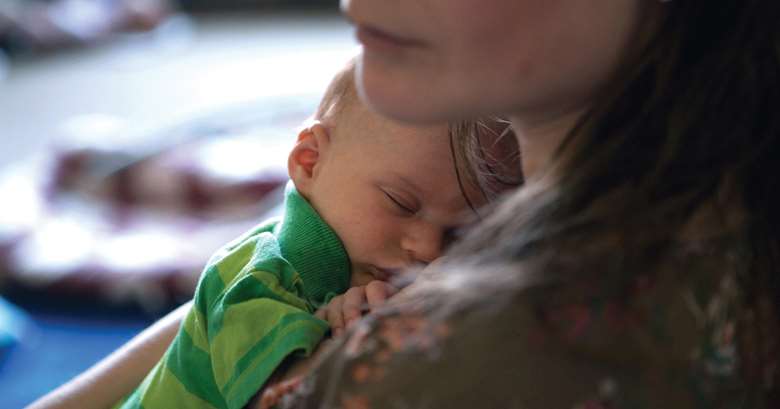In Focus: Family nurse partnerships
4Children
Monday, May 13, 2013

Insight
Asking for help can be daunting for parents, especially when they feel that in doing so they may be exposing themselves to accusations of bad parenting. Teenage mothers often experience stigma.
A recent YouGov poll commissioned by Home-Start UK revealed the extent of this fear, with almost 7 in 10 parents with children under the age of five saying that being called a “bad parent” is the most offensive criticism they could receive.
Young mothers who have themselves experienced difficulties at home can have an initial resistance to receiving outside help, seeing this as reflecting badly on their parenting skills. In the 2010 Family Commission, it was found that while 47 per cent of families polled said they thought families needed more advice and information when things go wrong, only 14 per cent agreed that families needed more help from social services specifically. That is one of the reasons why family nurse partnerships are so successful: the nurses work with families, providing them with practical and empowering support – in contrast to the experience many will have had from other services.
So it is really good news that the government is expanding the Family Nurse Partnership programme. We can learn from this and other successful interventions, like family intervention projects, about what really works in getting families on the right track and preventing cycles of disadvantage.
Anne Longfield is chief executive of 4 Children
In Depth
The focus on families is at the heart of the flagship Family Nurse Partnership programme, which has been operating in England since 2007. The Department of Health estimates the scheme has supported around 11,000 of the most disadvantaged young mothers throughout England.
The evidence-based scheme is available in England for first-time disadvantaged mothers under the age of 20, with the focus on developing the emotional attachment between baby and mother in the period from conception to early infancy. Increasing evidence suggests that this initial period is crucial to developing a strong psychological and emotional bond between baby and mother.
Many of those who are recruited into the programme also possess characteristics that make them potentially vulnerable to poor outcomes for themselves or their children, with the majority having a low income, living apart from their partner, and with few educational qualifications or without steady employment.
Family nurses provide weekly and fortnightly home visits, using a strengths-based approach, identifying and tapping into families’ capacity and motivation to make change happen for the sake of their child. The skilfulness of the nurses lies in their ability to develop a trusting, respectful relationship with mothers, using that relationship and the tools of the programme to help mothers tap into their motivation to protect and nurture their child. Family nurses are key to helping mothers work out the choices they need to make to ensure their babies are safe and healthy.
Since its launch in England, early evaluations indicate that the programme is being delivered well, with evidence showing a real difference being made in the lives of young families across a range of public health and safeguarding indicators. The programme has made a strong positive impact on the reduction of child maltreatment, while reductions in smoking, use of accident and emergency departments for ingestion and injury, premature births and low birth weights are also being seen. Child development outcomes are positive, with parents returning to study or work, reporting a strong sense of self-confidence and hope for their future.
In addition, family nurse partnerships have evidentially justified their value. The government announced in April this year that they intended to extend the programme to cater for a further 5,000 of the country’s most disadvantaged young mothers by 2015.
The expansion will be overseen by a partnership headed by the Tavistock and Portman NHS Foundation Trust, which will provide national leadership, strategic development and the training of prospective family nurses as the scheme is expanded further.
Informed
The Family Nurse Partnership emulates a US programme called the Nurse Family Partnership, which is based on the pioneering work of Professor David Olds. While working in an inner-city day care centre in the early 1970s, Olds was struck by the difficulties in the lives of low-income children. He realised the children needed better home-based help much earlier – even before they were born. Olds tested the programme and secured a strong evidence base.
Results showed that the programme not only improved pregnancy outcomes, but also the health and development of children, and helped parents create positive life chances for themselves.
In late 2006, as part of the “Reaching Out” programme, the Labour government announced that the licensed Nurse Family Partnership would be provided in 10 demonstration sites, to test whether it could be implemented in England.




